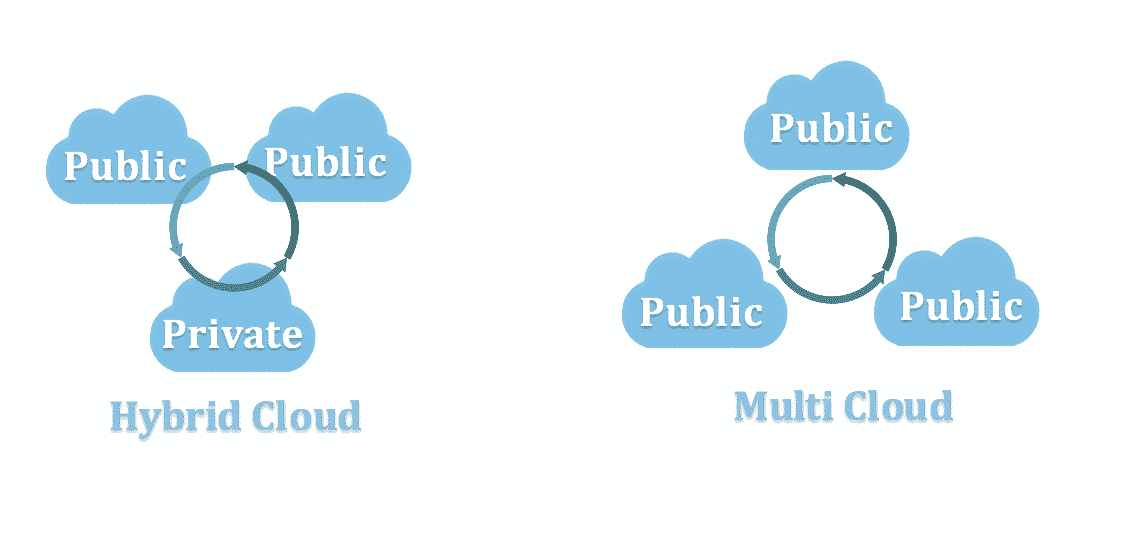Basics of Hybrid Cloud: Multi-Cloud Strategies Explained
In today’s digital era, businesses are increasingly relying on cloud computing to enhance agility, scalability, and cost-effectiveness. Hybrid cloud and multi-cloud strategies have emerged as essential approaches to modern IT infrastructure. Understanding these concepts is critical for any organization aiming to stay competitive in an evolving technological landscape.Basics of Hybrid Cloud
What is a Hybrid Cloud?
A hybrid cloud integrates private and public cloud infrastructures, enabling businesses to enjoy the benefits of both environments. Private clouds offer security and control, while public clouds provide scalability and cost efficiency.Basics of Hybrid Cloud
Core Features of Hybrid Cloud
- Flexibility: Organizations can seamlessly transfer workloads between private and public clouds, scaling resources as needed.
- Cost Optimization: By using public clouds for non-critical tasks, businesses can save significantly on operational expenses.
- Security and Compliance: Critical data stays on-premises or in a private cloud, ensuring compliance with regulatory standards.
What is Multi-Cloud?
Multi-cloud refers to the use of services from multiple public cloud providers, such as AWS, Google Cloud, and Microsoft Azure. This strategy allows businesses to leverage the unique features of each platform and avoid being locked into a single vendor.Basics of Hybrid Cloud
Core Features of Multi-Cloud
- Vendor Independence: No dependency on a single cloud provider ensures greater flexibility.
- Custom Solutions: Organizations can tailor solutions by selecting the best tools and services from different vendors.
- Resilience and Redundancy: Spreading workloads across multiple providers reduces the risk of downtime.
Why Hybrid and Multi-Cloud Strategies Are Important
The growing demand for digital transformation has pushed organizations to explore hybrid and multi-cloud models. These strategies allow businesses to meet diverse workload needs while staying agile and competitive.Basics of Hybrid Cloud
Business Benefits
- Operational Efficiency: Hybrid and multi-cloud approaches optimize resource allocation, reducing costs while maintaining performance.
- Enhanced User Experience: By distributing workloads intelligently, businesses can ensure faster response times and better service delivery.
- Improved Disaster Recovery: With redundancy across multiple environments, organizations can safeguard against system failures.
Comparing Hybrid Cloud and Multi-Cloud
| Feature | Hybrid Cloud | Multi-Cloud |
|---|---|---|
| Definition | Integration of private and public clouds | Utilization of multiple public cloud providers |
| Purpose | Balancing security and scalability | Avoiding vendor lock-in and optimizing tools |
| Security | High due to private cloud use | Dependent on provider security measures |
| Complexity | Moderate, requiring integration of private and public clouds | High, due to managing multiple providers |
Steps to Implement Hybrid and Multi-Cloud Strategies
Successfully adopting these strategies requires careful planning and execution.
1. Define Business Goals
Identify what you aim to achieve with a hybrid or multi-cloud strategy. Are you looking to reduce costs, improve performance, or enhance data security?
2. Choose the Right Providers
Evaluate cloud providers based on their offerings, security measures, and pricing models. For example, AWS excels in scalability, while Google Cloud offers AI and data analytics tools.
3. Invest in Cloud Management Tools
Effective management is key to optimizing hybrid and multi-cloud environments. Tools like Kubernetes, Terraform, and CloudHealth simplify workload orchestration and monitoring.
4. Prioritize Security
Ensure your hybrid and multi-cloud strategy includes robust security measures such as encryption, identity management, and compliance monitoring.
5. Train Your Team
Equip your IT team with the skills needed to manage and maintain complex cloud environments. Cloud certifications and training programs can be invaluable.
Common Use Cases for Hybrid and Multi-Cloud
Hybrid Cloud Use Cases
- Healthcare: Store sensitive patient data in private clouds while using public clouds for analytics.
- Finance: Manage critical banking operations in private clouds while deploying customer-facing applications on public clouds.
Multi-Cloud Use Cases
- E-commerce: Distribute workloads across providers to ensure high availability during peak shopping seasons.
- Gaming: Leverage multiple clouds for global server distribution and low latency.
Challenges of Hybrid and Multi-Cloud

While these strategies offer numerous benefits, they also come with challenges.
1. Complexity
Managing multiple environments can be daunting without the right tools and expertise.
2. Cost Management
Keeping track of expenses across providers requires vigilant monitoring and optimization.
3. Security Risks
Ensuring consistent security measures across platforms is crucial to avoid vulnerabilities.
Future Trends in Hybrid and Multi-Cloud
As cloud technologies evolve, several trends are shaping the future of hybrid and multi-cloud strategies:
- AI-Powered Management: AI and machine learning tools are increasingly being used to automate cloud management tasks.
- Edge Computing: Integration of edge computing with hybrid and multi-cloud models enhances real-time data processing.
- Sustainability Initiatives: Providers are focusing on eco-friendly cloud solutions to reduce carbon footprints.
Final Thoughts
Hybrid cloud and multi-cloud strategies are revolutionizing the way businesses operate in the digital age. By understanding their basics and implementing them effectively, organizations can unlock unprecedented levels of efficiency, flexibility, and resilience.Basics of Hybrid Cloud
Start your journey today by assessing your business needs and consulting cloud experts. The right strategy can propel your business into a future of innovation and growth.
Meta Description
“Learn the basics of hybrid cloud and multi-cloud strategies, their benefits, use cases, challenges, and how to implement them effectively for business growth.”Basics of Hybrid Cloud




